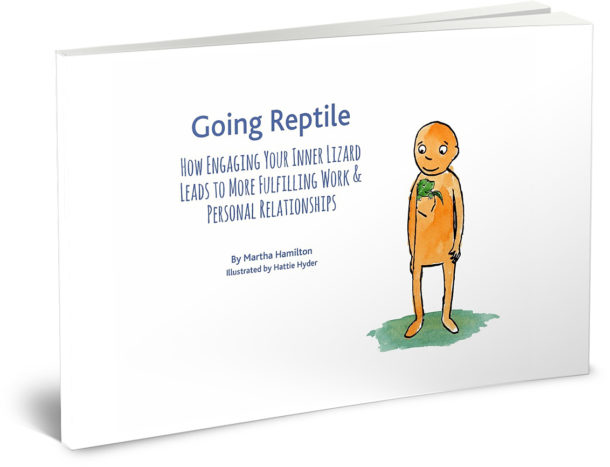Welcome to my VUCA blog series exploring at how we navigate stressful situations and environments (Volatility, Uncertainty, Complexity, and Ambiguity) by “Going Reptile.” (If you’re just joining the series, you may want to go back to the beginning and read the introduction.)
We’ve been looking into how stressful situations induce a movement in our system that decreases our access to our pre-frontal cortex – the part of our brain that we need to have online to creatively and effectively navigate complex and challenging situations. We “Go Reptile” and act in a variety of ways—some obvious, some subtle—that can be harmful to our personal and professional relationships.
I’ve broken down these response styles into four main categories – the Four F’s: Fight, Flight, Freeze and Fawn. In our last post, we started to discuss the Flight Styles and we’ll continue that inquiry here today with an exploration of the second of the Flight Styles: The Anticipator.
When threatened, people who employ this style tend to plan and re-plan to find a feeling of safety. If this is your style, you may find yourself imagining all sorts of scenarios for potential problems, then planning to assure that it does not come to that. People with this style put a lot of effort into not having to feel as if they are responsible for something going wrong – and when it does go wrong, they disengage, becoming lost in their own world of self-doubt and inadequacy.
Indicators: Lots of effort to keep others happy through planning and anticipation of issues. Frantic scurrying to assure that all the plates stay in the air. Panic and disengagement when things don’t work out, with a resignation that this was just the way it had to be – even if it didn’t.
People who employ this style when feeling threatened can be charming and appear very attentive and aware of the needs of others, because they do a lot of behind the scenes work to assure that everything appears to be OK. They increasingly become agitated and less attentive as they slide further into their reptilian response.
This style can be exhausting – both for the person utilizing this style and those around them. If you find yourself feeling exhausted, see if you can see a little more subtly what is occurring in or around you. If it’s hard to see what is happening, consider getting some support to allow you to see more clearly.

